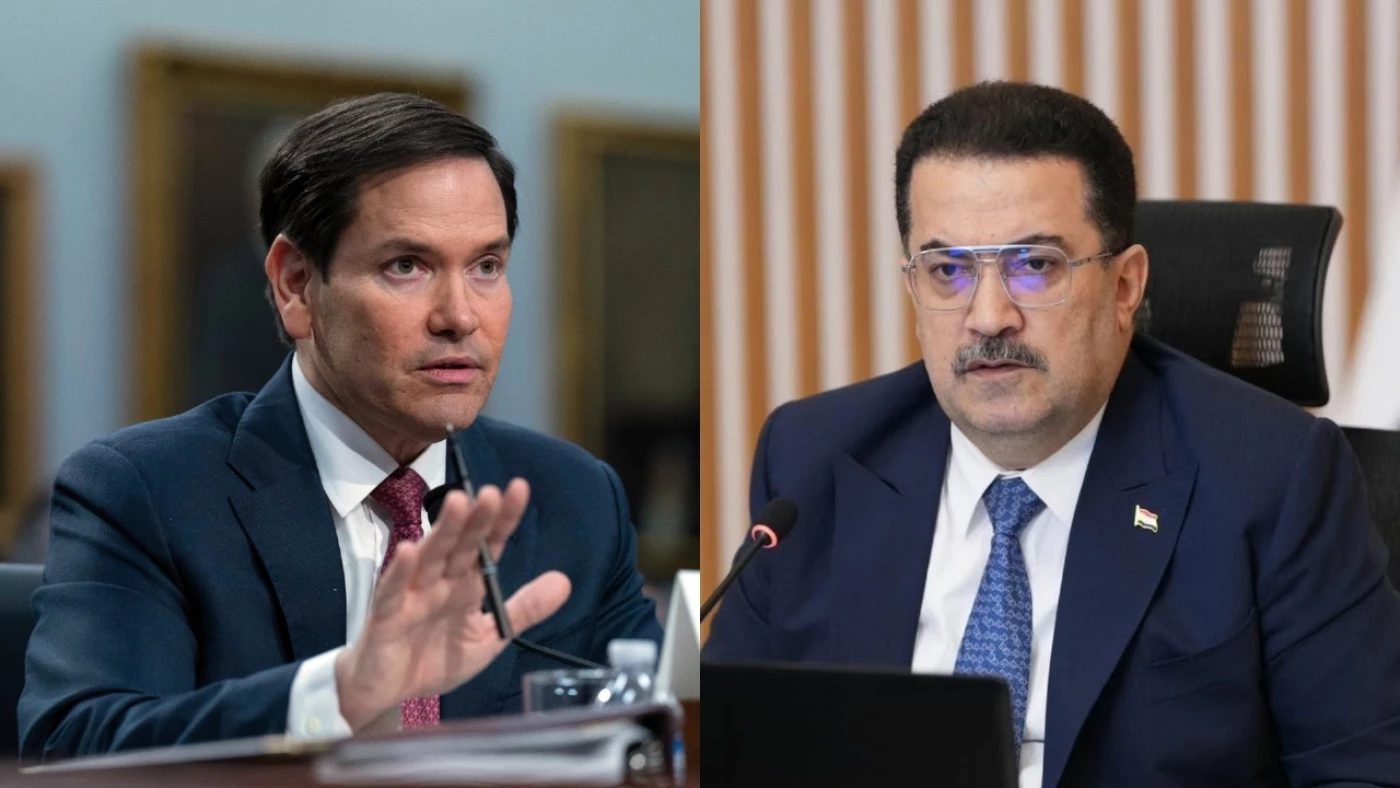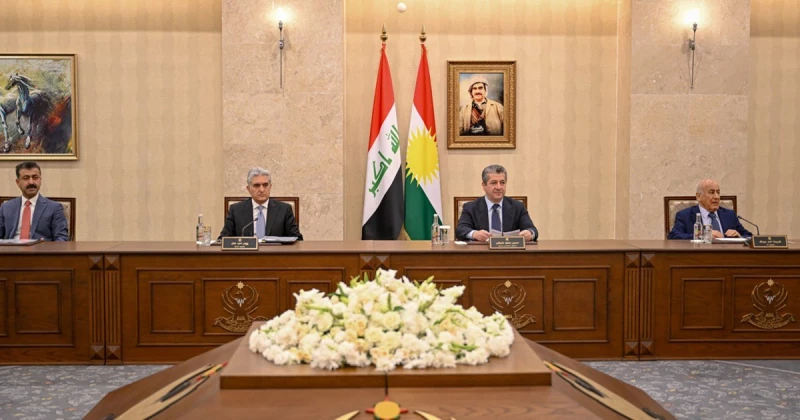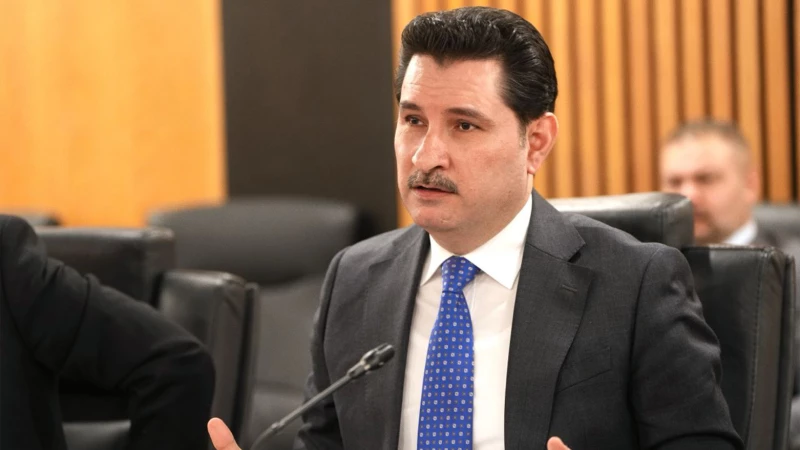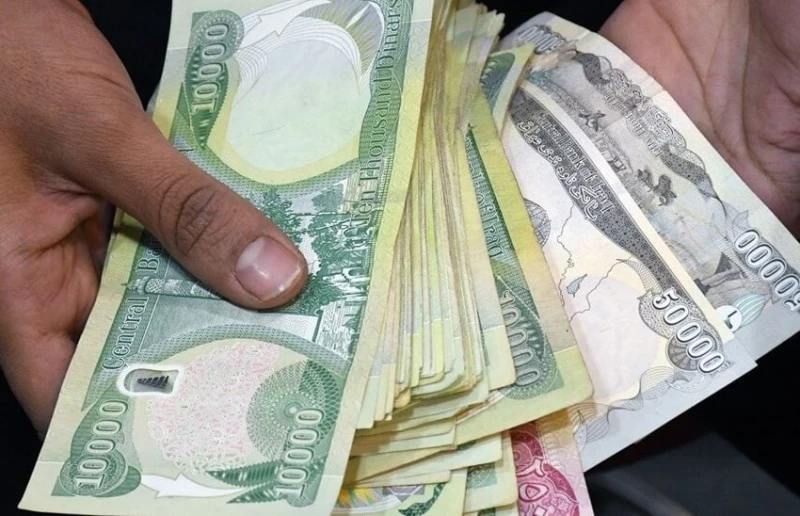ERBIL, Kurdistan Region of Iraq - The attacks on the Kurdistan Region’s oil facilities, the Region’s civil servant salaries, and resumption of Kurdish oil exports were highlighted during US Secretary of State Marco Rubio’s phone call with Iraqi Prime Minister Mohammed Shia’ al-Sudani.
Dozens of drone strikes have targeted oil facilities across the Kurdistan Region since the start of the month, prompting international oil producers operating in the Region, including American companies, to suspend production.
In a phone call with the Iraqi premier on Tuesday, the US diplomacy chief “stressed the importance of the Iraqi government holding the perpetrators [of attacks on Kurdistan Region’s energy infrastructure] accountable and preventing future attacks,” read a statement attributable to State Department spokesperson Tammy Bruce sent to The New Region.
The Association of the Petroleum Industry of Kurdistan (APIKUR) on Wednesday said that most of its member companies, “including those not targeted,” had halted production in light of the attacks, which came amid negotiations between Erbil and Baghdad to resume the Kurdistan Region’s oil exports — halted since March 2023.
A statement from Sudani’s office on the phone call reported the Iraqi premier’s side of the conversation, stating that Sudani “expressed his surprise that these attacks coincided with the agreement of principles between the Ministry of Oil and American investment companies operating in the region to invest in several oil fields in Kirkuk and Salahaddin.”
“The Secretary noted the importance of paying Iraqi Kurdistan Region (IKR) salaries consistently and resuming oil exports via the Iraq-Türkiye Pipeline,” the statement from Bruce added.
Sudani told Rubio that the KRG’s commitment to transferring produced oil and non-oil revenues to the public treasury “has helped resolve financial and legal obstacles between the federal government and the Regional Government,” according to the statement from his office.
He also emphasized the importance of resuming exports through the Iraq-Turkey pipeline, while stressing the need to “halt all forms of smuggling.”
Earlier this month, the State Department told The New Region that Washington will not accept “an indefinite delay” in resolving issues relating to the Kurdistan Region’s oil exports, calling on all involved parties to urgently restart operations.
Erbil and Baghdad have been at loggerheads over the management of the Kurdistan Region's oil fields and the disbursement of civil servant salaries for years. The latest episode occurred in May after Iraq's Finance Minister Taif Sami notified the Kurdistan Regional Government (KRG) that they would not be funding the Region's civil servant salaries, arguing that the Region had already exceeded its annual budget share in May.
An agreement was eventually reached last week between the two governments, whereby the Kurdistan Region agreed to export 230,000 barrels of oil per day through the federal government's State Organization for Marketing of Oil (SOMO), in addition to paying 120 billion Iraqi dinars in non-oil revenues to Baghdad as its share of the federal treasury, in exchange for salaries.
During a visit by Kurdistan Region Prime Minister Masrour Barzani to Washington in May, Rubio described Erbil's autonomy and economic freedom as the “linchpin” to the United States’ approach toward Iraq. During the same trip, the Kurdish premier inked a number of deals in the energy field that combined for a value of around 110 billion US dollars.
PMF bill
In another part of the call, Rubio reiterated Washington’s “serious” concerns with attempts to pass a controversial bill relating to the Popular Mobilization Forces (PMF) in the Iraqi parliament.
A proposed bill approved by the Council of Ministers in February includes the Service and Retirement Law for the PMF and aims to organize the Popular Mobilization Commission (PMC) similarly to other state security and military agencies.
Rubio told Sudani that “any such legislation would institutionalize Iranian influence and armed terrorist groups undermining Iraq’s sovereignty.”
US Congress members have launched several initiatives in recent months to curb Iranian influence on Iraq, calling for the cessation of all security assistance to Iraq and imposition of terrorist designations on several armed factions who are part of the Iraqi state security apparatus due to their affiliation with Iran, including the PMF.
“We support a prosperous Iraq, free of Iran’s pernicious influence,” wrote Rubio in a post on X on his call with Sudani.
Sudani defended the controversial bill, saying it falls within the framework of Baghdad’s security reform process, and noting that the PMF is “an official Iraqi military institution operating under the authority of the Commander-in-Chief of the Armed Forces.”
In March, US President Donald Trump addressed a letter to Iranian Supreme Leader Ayatollah Ali Khamenei, pressing Tehran for talks over the nuclear issue. The letter reportedly also included a direct request to dissolve armed groups in Iraq, specifically the PMF.
Updated with Sudani statement at 11:45


 Facebook
Facebook
 LinkedIn
LinkedIn
 Telegram
Telegram
 X
X



